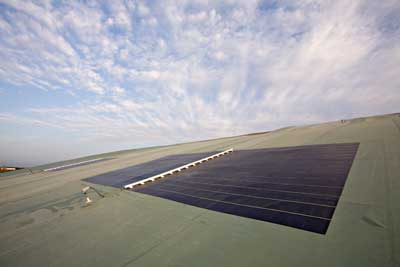
Positive Trend: Making Brownfields Green, Waste Clean

Companies in the renewable-energy and clean tech arena are pioneers in leading the world into a cleaner future. But they can’t do anything to change the dirty past. Right?
Wrong. Many of these green companies are not only setting the world on a lower-emissions course, but are actually cleaning the mess left by decades of ruthless contamination.
Solar companies, in particular, have been active in this space. For instance, many project developers are interested in siting their installations on former landfill sites. Although these locations are chosen for practical – rather than symbolic – reasons, solar adds a green hue to these once-filthy sites.
Solar developer PVNavigator, for instance, just signed an agreement to study the possibility of building a photovoltaic facility on a former landfill site in San Bernardino County, Calif.
Likewise, electric utility Western Massachusetts Electric Co. has already completed a large solar installation on a contaminated brownfield site in Pittsfield, Mass., that would otherwise be unsuitable for any other type of development, and the company is pursuing similar projects in the area. (For more details on the Silver Lake solar project, check out my article in the January 2011 issue of Solar Industry.)
Some of these companies are going as far as to decontaminate sites, with the help of federal and state governments.
groSolar also chose a landfill site for one of its solar projects, which will be used to power a pump and treat system to decontaminate groundwater in New Jersey. On the federal level, the U.S. Environmental Protection Agency doled out funds for an electrical resistance heating system to clean up pesticide-contaminated sites in California, and all of the power used in the decontamination system will be offset by a solar project located on the site itself.
No, we can’t erase the mistakes of our polluted past. But perhaps more of these double-duty projects can put us on a faster track to a cleaner future.
Visit Laura DiMugno’s original article in the Keep It Green blog.























